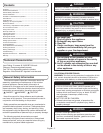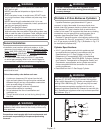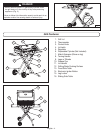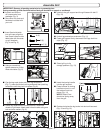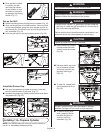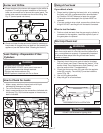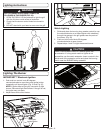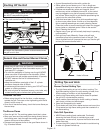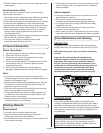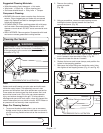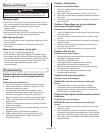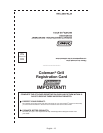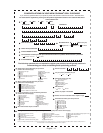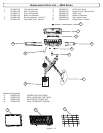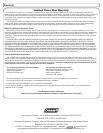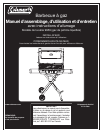Special offers from our partners!

Find Replacement BBQ Parts for 20,308 Models. Repair your BBQ today.
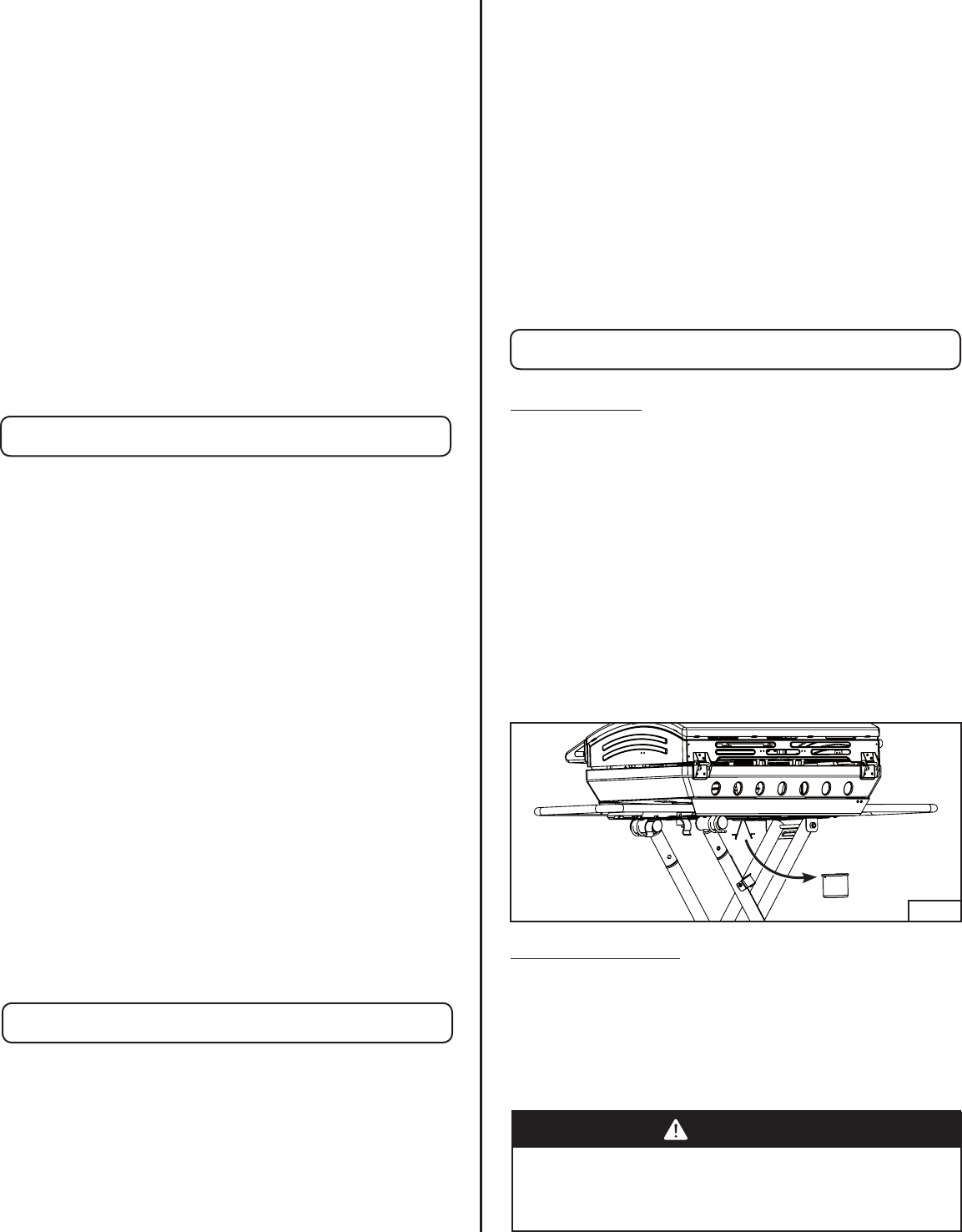
English - 10
Follow These Steps
1. Shut off the gas at the burner valve(s) and stay away!
2. Allow the fire to burn itself out.
3. Once the fire is out and the appliance has cooled,
remove the disposable cylinder.
4. Clean all parts and inspect for damage. Parts to check
for damage are the L.P. cylinder, regulator, burner
valve(s) and burner(s).
5. If any of the above mentioned components are
damaged, please call phone numbers listed in warranty.
Note:
•Some flare-up adds a smoky flavor and sears food.
Excessive grease fires can cause a potentially hazardous
situation and damage the grill.
•Avoid excessive flare-ups by preheating the grill with the
lid closed for 5 minutes on the high setting to burn off
grease from previous cooking.
•Cook with the lid down and continually monitor cooking
food to avoid grease fires and flare-ups.
•Trimming excess fat from meat will reduce grease fires
and flare-ups. Cook fatty meat in smaller amounts over
indirect heat on a low setting.
•Be sure to follow the instructions in the section titled
“Care, Maintenance, and Cleaning”.
•DO NOT expose any part of your body directly above the
cooking area.
Food Preparation Hints
Your grill can cook a variety of foods. For best results,
follow these instructions:
•Trim excess fat from meat and poultry. Slash any remaining
fat to stop curling, but take care not to cut the meat.
• Frozen meat and poultry should be thawed prior to cooking.
•Frozen fish and vegetables will cook without thawing.
•Salt food after cooking to help prevent drying out the food.
•Brush naturally lean meats with cooking oil or margarine.
•Cook small pieces of tender foods in foil or on special
delicate-food cooking grates (see the section titled
“Cooking Methods”).
•Apply barbecue, tomato or sugar-based sauces no sooner
than the last 10 m inutes of cooking.
•Turn food with tongs or a spatula; piercing food
(especially meat), tends to dry it out.
Direct method:
•The heat source is directly below the food.
•Use for browning meat or cooking hot dogs and
hamburgers, but check food frequently.
•Use for skillet and stir-fry cooking, but limit the amount of
oil and heat to be used.
•Cook roasts, turkey or duck on low heat. Place meat with
water in a foil pan with a corrugated bottom. Replenish
water as needed.
Indirect method:
•Light only one side of the burner and place food on the
opposite side for cooking.
•Allow food to cook at a lower temperature which
increases tenderness and reduces grease flare-ups.
•It is a good method for cooking foods that burn easily
(vegetables, fish, etc.).
•Cook casseroles in ovenware or foil pans much like
cooking in a conventional oven.
•Also try placing a pan of water above the lit burner side to
help meat retain its juices. Replenish the water as needed.
GREASE CUP
The grease cup is located below the grill and should be
cleaned after each use to prevent heavy build up. (Fig. 36)
COOKING GRATE
The cooking grates can be cleaned immediately after
cooking is completed and after turning off the grill. Wear a
barbecue mitt and scrub the cooking grates with a damp
cloth. If the grill is allowed to cool down, cleaning the grates
will be easier if removed from the grill and cleaned with a
mild detergent.
In Case of Grease Fire
Cooking Methods
Care, Maintenance and Cleaning
All cleaning and maintenance should be done only
when the grill is cool & with the fuel supply turned off
at the cylinder. Disposable propane cylinders should be
detached from the grill during cleaning.
CAUTION
Note: Allow the grease cup to cool before attempting
to clean.
Important: Do not leave the grill outside during
inclement weather unless it is covered (cover sold
separately). Rain water can be collected inside of
the grill, or in the grease cup if left uncovered. If the
grease cup is not cleaned after use and the grill is left
uncovered, the grease cup will be filled with water
causing grease and water to spill. We recommend
cleaning and storing the grease cup after every use.
Fig. 36



